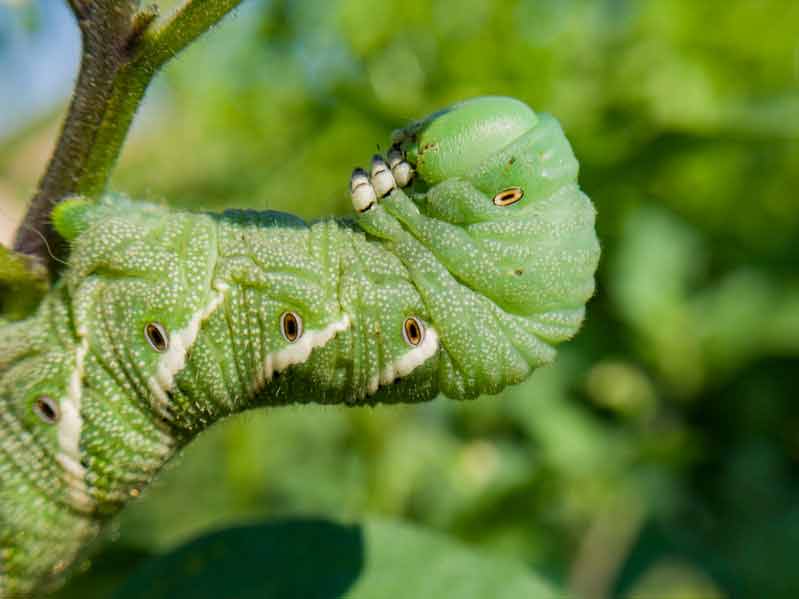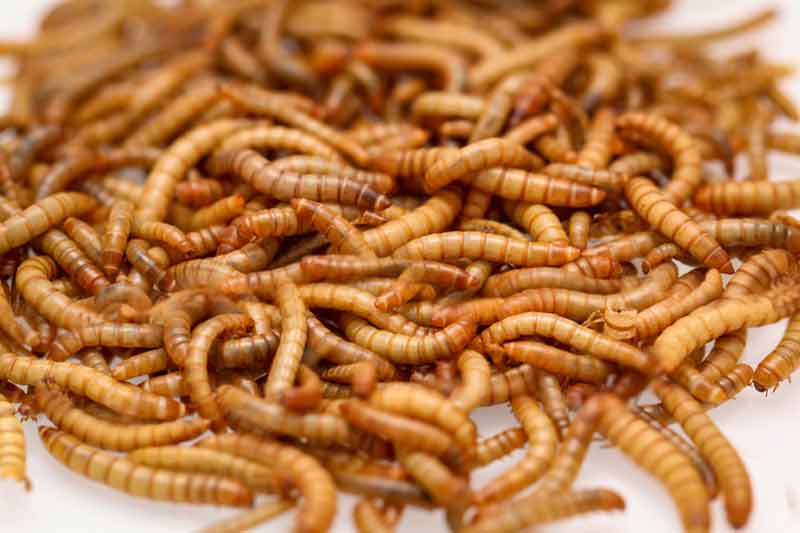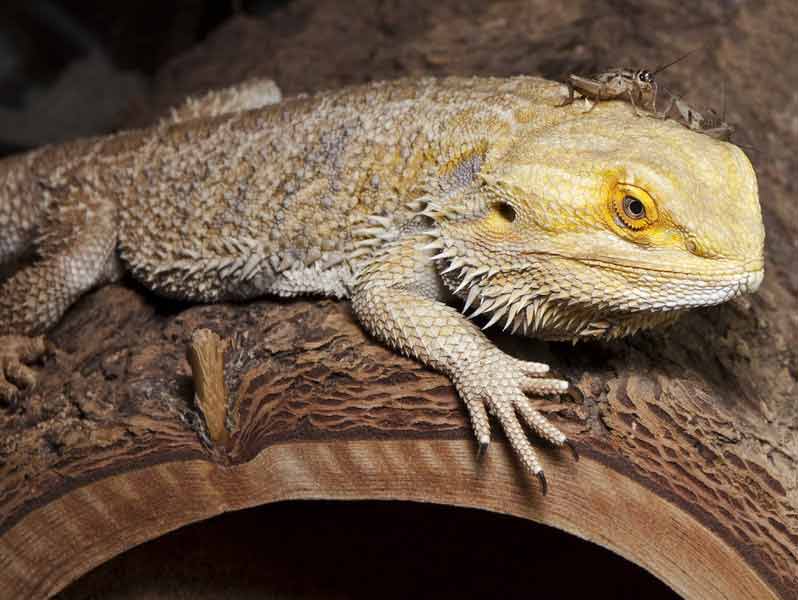A bearded dragon is often fed crickets and other nutritious insects, as well as vegetables and fruits. However, bearded dragons may eat only the crickets that are fed to them and other insects as a food source.
One healthy alternative that bearded dragons would eat is mealworms. Mealworms have less protein than crickets, but bearded dragons need some protein in their diet. Another good alternative for bearded dragons to eat are silkworms, which have more protein than crickets but less than mealworms. The bearded dragon needs just a little bit of fruit or vegetable in order to balance out the intake of proteins that bearded dragons need.
Pet owners these days have developed unique interests to keep non-conventional pets at home. Bearded dragons are a good choice for those who want to keep a non-conventional pet.
If you already have a bearded dragon at home, you may be confused about its diet. People who keep bearded dragons often ask about their diet. The common diet of bearded dragons is crickets.
However, several other insects can be a good source of nutrition for your bearded dragon. This article will educate you about the alternative diet of your bearded dragon.
Table of Contents
Can Bearded Dragons Eat Dubia Roaches?
Dubia roaches are one of the best staples for your bearded dragon. Your aim should be to provide a perfectly balanced diet to your bearded dragon. Dubia Roaches contain many proteins, a moderate amount of fats and a low amount of carbohydrates. This combination makes it a perfect alternative to the crickets. It has many advantages over crickets that makes it an excellent diet to offer to your bearded dragon.
You should offer an adequate size of Dubia roaches to your bearded dragon to quickly engulf. The major advantages of Dubia roaches over crickets are described below.
- 1. Dubia roaches do not produce a smell like crickets.
- 2. They are quiet and does not produce noise.
- 3. They are very easy to be bred and produce a large number of insects for future feeding.
- 4. They are no able to climb. Therefore, there is no chance for them to escape.
Dubia roaches can be a staple in your bearded dragon diet. They are full of protein, fats, and low carbohydrates, making them a perfect alternative to crickets. You should discuss dubia roaches with your bearded dragon veterinarian to ensure you are giving the best diet possible.
There are many more dubia roach advantages than crickets. You should try dubia roaches for your beardie and see the difference dubia roaches make in their health.
Can Bearded Dragons Eat Goliath Worms?

After Dubia roaches, goliath worms also make an excellent choice of alternative to crickets. These worms can grow four to five inches in length and, therefore, can be a good source of nutrition for your bearded dragon.
Goliath worms can be easily bred, and you should purchase them from a reputable pet store. You can also order goliath worms online as they are an excellent source of protein for your bearded dragon.
Goliath worms contain high moisture contents that keep your bearded dragon hydrated. Furthermore, they contain reasonable amounts of calcium contents. You can offer goliath worms to your bearded dragon after four to five days of growth.
Goliath worms perform a great job in keeping away your bearded dragon from other harmful insects. They are live feeders and are excellent eater of fly larvae, mosquitoes, silver fish and many more.
If you keep goliath worms at home, there is no need to worry about the breeding process as it is very easy. The only precaution that you need to take is the temperature as goliath worms are not able to breed at temperatures lower than 55 degrees.
There is a wide variety of worms that can be an excellent alternative for your bearded dragon diet. You should talk to your vet about their dietary intake and make sure you provide the best balance of proteins, fats and carbohydrates for your bearded dragon.
Can Bearded Dragons Eat Wax Worms?
Bearded Dragons can eat wax worms. Wax worms are tasty, nutritious small worms that you can offer to your bearded dragon. They are white-coloured worms that serve as the best option of an occasional treat to your bearded dragons. Your dragon will find it tasty because of its high fat.
If we talk about its nutritional contents, they contain a large amount of fat that is not healthy if given more often. Therefore, wax worms should be given as a staple diet; instead, you should offer wax worms as an occasional treat to your bearded dragon.
You should feed not more than five wax worms to your bearded dragon in a day. Otherwise, your bearded dragon will become obese. You can purchase wax worms from pet stores or online.
If you find it difficult to purchase wax worms, then you can easily make your own at home. There is a recipe available on the internet that tells how to prepare homemade wax worms for your bearded dragon. If you want to cook them at home, you need to wrap them in cheese cloth and allow them to chill for about 30 minutes or till the time they become stiff.
These wax worms are an excellent source of nutrition and, therefore, can be offered to your bearded dragon after every eight to ten days for a complete dietary intake. You should note that the nutritional content of wax worms decreases with nearly 50% if you keep them refrigerated for too long a period of time.
You can feed wax worms to your bearded dragon as a treat, but it is highly recommended that you avoid feeding them with honey. This can increase the risk of having a bowel problem for your bearded dragon.
Can Bearded Dragons Eat Mealworms?
Yes, bearded dragons can eat mealworms. Mealworms are a great alternative because they can be kept alive on grain for months so can be great in those times when you can’t get to the store for crickets.

Mealworms are one of the most famous feeder insects for reptiles. Mealworms offer a lot of nutrients, and they are easy to handle. Mealworms can grow up to 2/3 inches long and develop a strong layer of chitin around their body.
You should feed mealworms to young dragons because they may find it difficult to digest the chitin layer. However, adult bearded dragons will be happy to eat mealworms.
Mealworms don’t move much, and you can store them in the refrigerator if you have ordered more than required. You can quickly defrost mealworms without losing their nutritional contents.
However, you should offer mealworms as a supplement to the staple diet. At maximum, four to five mealworms per day are enough for your bearded dragon. They are available at every pet store, and you can also order mealworms online.
These mealworms should be stored in a container with plenty of mealworms. You should not keep mealworms in the fridge for a longer period of time as their nutritional content will be lost. Try to avoid mealworm molting at all costs because your bearded dragon may eat it.
Mealworms are an excellent source of proteins, fat, and carbohydrates. Therefore, mealworms can help boost your bearded dragon’s immunity. You can feed mealworms to your bearded dragon at least once a week. It will help keep them healthy and strong.
Can Bearded Dragons Eat Phoenix Worms?
Yes, bearded dragons can eat phoenix worms. Phoenix worms are a great option because they can be kept alive on phoenix worm live food for months. This means that they can be the perfect food for those times when you can’t get to the store for crickets.
Phoenix worms are also one of the most popular feeder insects for reptiles. The phoenix worms offer a lot of nutrients and they are easy to handle as well. They grow up to 2/3 inches long and develop a hard layer of chitin around their body.
However, phoenix worms should only be fed to young dragons because they may find it difficult digesting what’s known as the phoenix worm’s hard outer shell or ch
Phoenix worms are a good food for bearded dragons. They provide high levels of proteins and calcium sources which bearded dragons need. They are also small, which means they are often hard to feed to the bearded dragon because they can’t eat them easily.
You need a large number of phoenix insects for your bearded dragon to eat. The best way to offer phoenix worms to your bearded dragons is to put them in a shallow bowl inside the enclosure. It may be expensive to feed your bearded dragon phoenix worms because they are required in a large amount.
Can Bearded Dragons Eat Earthworms?
Yes, earthworms can indeed be eaten by bearded dragons. However, earthworms should only be offered as a treat and not as a staple in their diet. You should also note that the nutritional content of earthworms decreases with nearly 50% if you keep earthworms refrigerated for too long a period of time.
Earthworms are not famous insects to feed your bearded dragon. However, they are an excellent source of moisture and calcium. It is essential to offer a diet with high moisture contents because water is needed to carry out the body’s basic metabolism.
Earthworms are not used as a staple diet. Instead, they are used as occasional treats to add variety to your dragon’s diet. High moisture content makes earthworms more palatable. You can purchase earthworms from the pet store.
You should consider not purchasing bait earthworms because they are covered with dyes. You should purchase earthworms from a reputable pet store. You
The reason earthworms are not used as a staple diet is because they have no nutritional value. They can also be difficult to digest and cause intestinal blockage in your bearded dragon. Lastly earthworms do not have the proper calcium content that bearded dragons need for strong bones.
If you decide to feed earthworms to bearded dragons, then do it sparingly. You should avoid earthworms being the main diet of your bearded dragon.
Bearded dragons are beautiful non-conventional pets that have somewhat different requirements than usual pets. They need enclosures resembling wild environments and food that they eat in a wild condition.
You should offer them whatever they expect from you. In the case of food, you should offer them a cocktail of different insects to add taste to their diet. Or you can feed them different insects on alternative days.
Whatever you find easy, you should let them bored because of the same food over and over again.
FAQ – Frequently Asked Questions About Bearded Dragon Alternatives To Crickets
We have put together a selections of questions we get a lot here on Itsanimal. We thought these might be helpful for most readers of this article.
How Can Mealworms Help Bearded Dragons Improve Their Immunity?
Mealworms can help bearded dragons improve their immunity by providing the bearded dragon with antioxidants.
Antioxidants are chemicals that protect cells from injury and infection which would allow bearded dragons immunity to be improved.
The bearded dragon would have more resistance to disease as a result of mealworms being eaten as they provide the bearded dragon with more natural ability to fight infection.
Is It Bad For Bearded Dragons To Eat Live Crickets?
It’s not bad for bearded dragons to eat live crickets. The bearded dragon is in high demand of proteins and calcium sources, which live crickets provide. They also make it easier for bearded dragons to grab and eat the crickets.
Even though live crickets are not bad for bearded dragons, they still have to be fed in moderation. Too much or too little live crickets will not be good for bearded dragons.
Compare to dead crickets live crickets are easier to digest. Dead crickets are harder for bearded dragons to digest than live crickets which makes them safer for bearded dragons to eat.
Do Bearded Dragons Need To Eat Earthworms Or Phoenix Worms Every Day?
No, bearded dragons do not need to eat earthworms or phoenix worms every day. They should not be fed as a staple in their diet, but as an occasional treat to add variety.
Earthworm’s nutritional content decreases when kept refrigerated for too long of a period of time. They also need to be cleaned, and that’s where a lot of their nutritional content is lost.
Bearded dragons should not be fed earthworms as much as they want to eat them because they have no nutritional value. They can also cause intestinal blockage in bearded dragons.
If your dragon really loves worms then you could feed him once or twice a week in limited amounts. These worms are not meant to be the main diet of bearded dragons, but they can be eaten to supplement the regular diet with calcium and other minerals that they do not get from crickets or superworms alone.
What Are The Main Differences Between Earthworms And Phoenix Worms As A Food For Bearded Dragons?
Earthworms and Phoenix worms have different health benefits, but one of the main differences between them is that earthworms are easier to digest than Phoenix worms.
Phoenix worms are not recommended as a food for bearded dragons because they’re difficult to digest and can cause intestinal blockage.
Earthworm’s nutritional content decreases when kept refrigerated for too long of a period of time, so it’s important they’re eaten within an appropriate period of time.

